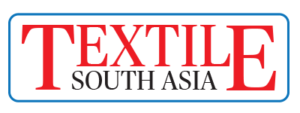The Lenzing Group, a leading supplier of regenerated cellulose fibers for the textile and nonwoven industries, has achieved outstanding results in the Higg Facility Social & Labor Module (FSLM) certification for five of its production sites. This involved measuring the social impact of production in areas such as wages, working hours, health and safety, and treatment of employees.
In addition to ecological and economic challenges, the global textile industry also has to contend with a number of social challenges, including precarious working conditions, non-compliance with human rights, and other social grievances in parts of the value chain. Transparency along the supply chain plays an important role in overcoming these. One of Lenzing’s key sustainability goals is to obtain a valid, independently audited, and accredited social standard certificate for each of the Lenzing Group’s production sites by 2024. This goal is pursued through the Higg Facility Social & Labor Module (Higg FSLM), which assesses social and labor-related conditions. In 2023, more than 7,200 companies worldwide underwent this audit, with Lenzing’s result placing it in the top 25 percent of all verified Higg FSLM facilities.
“We are delighted with the outstanding results in the Higg Facility Social & Labor Module. They show once again that social sustainability and responsibility are not just buzzwords or empty phrases for us, but that we are actively committed to better working conditions. We will remain true to our mission and continue to contribute towards a textile industry more sustainable and fairer for all players in the industry,” says Christian Skilich,
independently verified social certifications are now essential for companies like Lenzing to be considered as a supplier. Major brands and retailers have already established clear guidelines for their supply chains that require potential suppliers to be socially certified.
Florian Heubrandner, Executive Vice President of Commercial Textiles of the Lenzing Group: “If we can show clearly and transparently that social aspects of sustainability are just as important to us as environmental issues, this will improve our business relationships”.
A recent study by the Society for Applied Economic Research in Innsbruck (Austria)1 emphasizes Lenzing’s responsibility as an important employer. The Lenzing Group creates a total of 25,292 jobs in the five countries in which it operates production facilities. This figure includes not only employees but also indirect jobs – because every direct job created creates more than two additional indirect jobs in other sectors of the economy.










